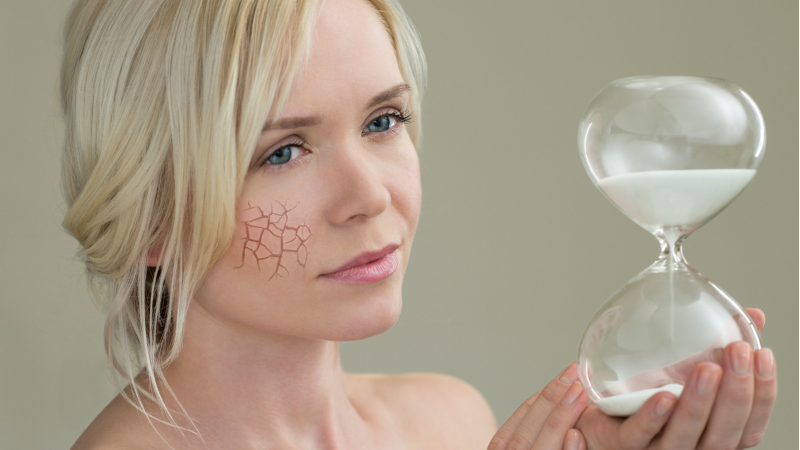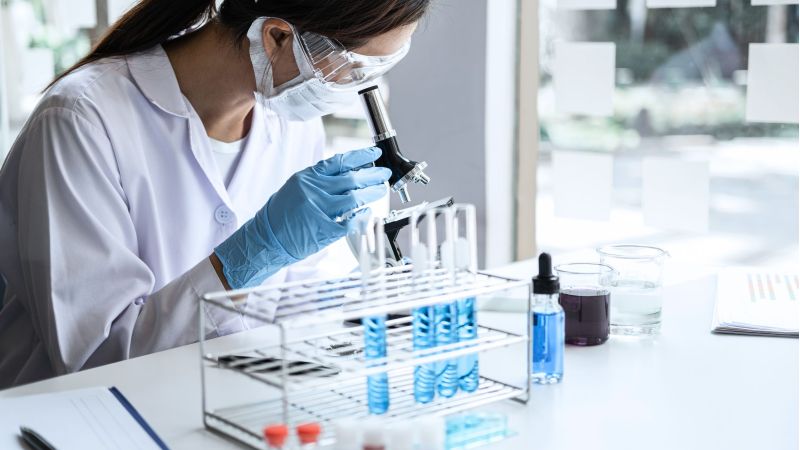
Understanding Your Body Better with a Biological Age Test
Understanding the body at a deeper level is essential in the quest for optimal health and longevity. A biological age test is one of the most valuable tools in this journey. By uncovering the true age of your body, you can make informed decisions about your lifestyle, take proactive steps toward improving your health, and make personalized choices for long-term wellness.
Understanding Biological Age
What is biological age? While chronological age refers to the number of years you’ve lived, biological age considers various factors influencing the health and aging process. It measures how well the body functions and how well one is aging relative to one’s actual age.
The concept of biological age is rooted in the science of aging. Scientists have discovered that the body can age at different rates due to various factors such as genetics, lifestyle choices, and environmental influences. Biological age is a way to quantify this aging process.
Biological age represents the body’s true age based on internal aging markers. It is calculated by assessing key biomarkers such as blood pressure, cholesterol levels, physical fitness, cognitive function, and other health indicators. By analyzing these markers, a biological age test can provide valuable insight into your overall health and aging process.
The science behind biological age is complex yet fascinating. Scientists have identified certain biomarkers that can indicate the state of your health and the rate at which your body is aging. These include telomere length, epigenetic modifications, inflammatory markers, and hormonal balance.
Research has shown that these biomarkers can be influenced by a variety of factors, such as stress, diet, exercise, sleep, and overall lifestyle choices. By examining these biomarkers, scientists can determine an individual’s biological age and gain deeper insights into their health status.
For example, telomeres, which are protective caps at the ends of your chromosomes, tend to shorten with age. Shorter telomeres are associated with a higher biological age and an increased risk of age-related diseases. On the other hand, maintaining longer telomeres through healthy lifestyle choices can slow down the aging process and improve overall health.
Epigenetic modifications, which are changes in gene expression without altering the DNA sequence, also play a crucial role in biological aging. These modifications can be influenced by factors such as diet and stress, affecting how the genes function. By studying epigenetic1 markers, scientists can gain insights into how our lifestyle choices impact our biological age.
Inflammatory markers, such as C-reactive protein (CRP) and interleukin-6 (IL-6), are indicators of chronic inflammation in the body. Chronic inflammation is associated with various age-related diseases, including cardiovascular disease, diabetes, and certain types of cancer. Monitoring these markers can help assess an individual’s biological age and identify potential health risks.
Hormonal balance is another important aspect of biological age. Your hormone levels naturally decline as you age, contributing to various age-related symptoms and conditions. Scientists can gain insights into an individual’s biological age and overall well-being by evaluating hormone levels, particularly those related to reproductive health and stress response.
Understanding biological age can have significant implications for your health and well-being. It can help you make informed decisions about your lifestyle choices, such as adopting a healthy diet, engaging in regular exercise, managing stress, and getting adequate sleep. Taking proactive steps to improve your biological age can enhance your overall quality of life and potentially reduce the risk of age-related diseases.
The Importance of Knowing Your Biological Age
Understanding your biological age can have profound implications on your health and well-being. Here are a few key reasons why knowing your biological age is crucial:
Health Implications of Biological Age
Your biological age can offer valuable information about your health risks and overall vitality. By knowing your biological age, you can identify potential areas of concern and take proactive steps to address them. Adopting healthier habits or seeking medical intervention to prevent or manage age-related conditions can be a wake-up call.
For example, if your biological age is higher than your chronological age, it may indicate that your body is experiencing more wear and tear than expected. This could be due to factors such as poor diet, lack of exercise, or chronic stress. By recognizing this, you can make necessary changes to improve your overall health and reduce the risk of developing age-related diseases.
On the other hand, if your biological age is lower than your chronological age, it suggests that you are aging well and have a lower risk of age-related health issues. This can be attributed to factors like a healthy lifestyle, regular exercise, and a balanced diet. Understanding this can motivate you to maintain healthy habits and potentially inspire others to do the same.
Biological Age vs. Chronological Age
While chronological age is a fact, biological age can differ significantly. Many individuals look and feel younger or older than their actual age, which can be attributed to various lifestyle factors. Biological age provides a more accurate representation of how well you are aging and can guide you toward actions that can slow down aging.
Factors that can influence biological age include genetics, lifestyle choices, environmental factors, and overall health. For instance, someone who exercises regularly, eats a nutritious diet, manages stress effectively, and gets enough sleep may have a lower biological age compared to someone who leads a sedentary lifestyle, consumes unhealthy food, experiences chronic stress, and lacks proper sleep.
Knowing your biological age can help you make informed decisions about your health and lifestyle. It can motivate you to make positive changes, such as incorporating regular exercise into your routine, adopting a healthier diet, practicing stress-reducing techniques, and getting regular check-ups to monitor your health. By taking these steps, you can potentially improve your overall well-being and increase your chances of living a longer, healthier life.
How a Biological Age Test Works
A biological age test involves a comprehensive analysis of your health and lifestyle factors to determine how well your body is aging. Here are the key steps involved:
The Process of Biological Age Testing
Biological age testing typically begins with thoroughly assessing your medical history, lifestyle habits, and family health history. This information is then combined with a series of non-invasive tests, such as blood tests, physical fitness assessments, and cognitive function tests.
ALT TXT IMG: Lab tests
During the medical history assessment, healthcare professionals will ask you detailed questions about any existing medical conditions, previous surgeries, medications you are taking, and any lifestyle factors that may impact your health. This information helps them understand your overall health status and identify potential risk factors.
The lifestyle habits assessment focuses on factors such as diet, exercise, sleep patterns, stress levels, and substance use. These factors play a significant role in determining how well your body is aging. By evaluating your lifestyle habits, healthcare professionals can identify areas where improvements can be made to promote healthy aging.
Family health history is another crucial aspect of the assessment. By understanding your family’s medical history, healthcare professionals can identify any genetic predispositions or hereditary conditions that may affect your biological age.
Once the medical history, lifestyle habits, and family health history assessments are complete, non-invasive tests are conducted to gather objective data about your body’s functioning.
Blood tests are performed to analyze various biomarkers, such as cholesterol levels, blood sugar levels, and inflammation markers. These biomarkers provide insights into your overall health and can help determine your biological age.
Physical fitness assessments evaluate your cardiovascular fitness, muscular strength, flexibility, and body composition. These tests may include exercises like running on a treadmill, lifting weights, and measuring your body fat percentage. The results of these assessments give healthcare professionals a better understanding of your physical health and how well your body is aging.
Cognitive function tests assess your memory, attention, problem-solving skills, and overall cognitive abilities. These tests help determine the health of your brain and can provide insights into your biological age.
All the data gathered from the medical history assessment and non-invasive tests is then analyzed using advanced algorithms2 specifically designed for biological age testing. These algorithms consider various factors and calculate your biological age based on the collected data.
Once the analysis is complete, you will receive your biological age test results.
Interpreting Your Biological Age Test Results
Once you receive your biological age test results, it’s essential to understand what they mean. Your results may indicate that your biological age is lower or higher than your chronological age. If your biological age is lower, it suggests that your lifestyle choices have positively influenced your health and you are aging well. However, if your biological age is higher, it may indicate areas of concern that need attention.
Interpreting the results requires a comprehensive understanding of the various factors that contribute to biological aging. A healthcare professional can help you interpret your results and guide you in taking appropriate action based on your specific circumstances.
Based on your test results, healthcare professionals may recommend lifestyle modifications, such as improving your diet, increasing physical activity, managing stress, getting adequate sleep, and reducing exposure to harmful substances. These recommendations are tailored to address the areas where you may need improvement and promote healthy aging.
Regular follow-up tests may be recommended to track your progress and assess the effectiveness of any interventions or lifestyle changes you have made.
Remember, biological age testing is not a definitive measure of how long you will live or the quality of your life. It is a tool that provides valuable insights into your overall health and can guide you toward making positive changes to promote healthy aging.
Benefits of a Biological Age Test
A biological age test like AgeRate by Jifiniti Precision Medicine, Inc. offers several benefits, empowering individuals to take control of their health and make informed decisions to enhance their well-being:
Proactive Health Management
Knowing your biological age gives you the knowledge required to make conscious choices to improve your health and slow aging. By addressing any areas of concern highlighted by the test, you can take proactive measures such as adopting a healthier diet, increasing physical activity, managing stress, and seeking appropriate medical interventions.
Personalized Lifestyle Recommendations
A biological age test provides personalized recommendations tailored to your unique needs and health goals. These recommendations may include specific dietary modifications, exercise plans, stress management techniques, and strategies to improve sleep quality. Following these personalized recommendations can optimize your health and promote healthy aging.
Frequently Asked Questions about Biological Age Tests
Are you curious to learn more about biological age tests? Here are answers to common questions:
Are Biological Age Tests Accurate?
Biological age tests are based on scientific research and analyze multiple biomarkers to determine your biological age. While they can provide valuable insights into your health, it’s important to note that they are not definitive and should not replace medical advice. They should be seen as a tool to guide your health decisions and motivate you to prioritize your well-being.
How Often Should You Take a Biological Age Test?
The frequency of biological age testing depends on individual factors such as overall health, goals, and lifestyle changes. It is generally recommended to repeat the test every few years to track your progress and assess the effectiveness of any lifestyle modifications you have undertaken. Consulting with a healthcare professional can help determine the optimal testing frequency for you.
Conclusively, a biological age test can provide valuable insights into your health and aging, empowering you to make informed decisions about your lifestyles and take proactive steps toward optimizing your overall well-being. By understanding your biological age, you can unlock the potential to live a healthier, more vibrant life. Start by taking the Jinifiniti quiz and getting your longevity score today.
Referenced Sources:
Read More













